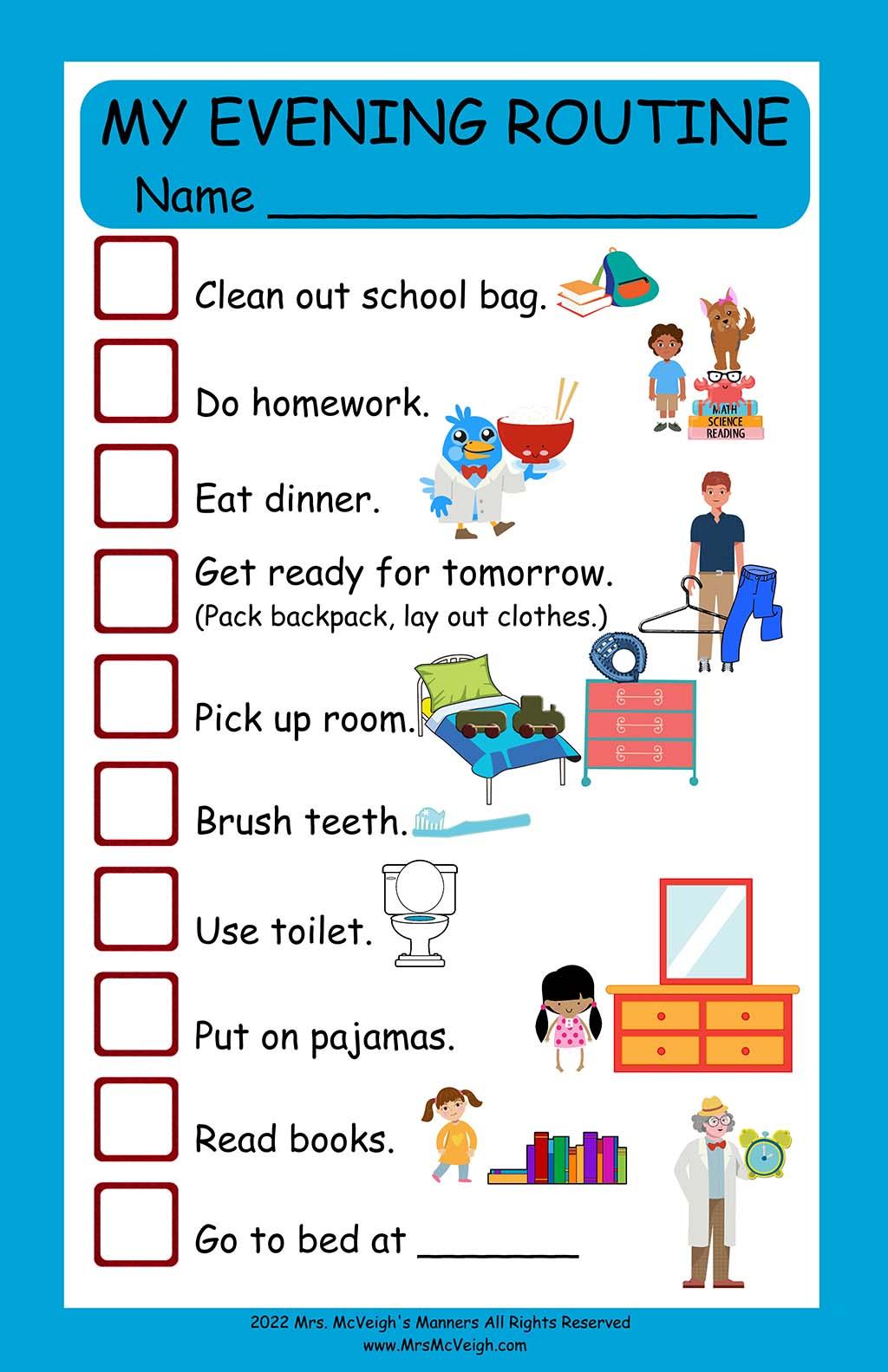In today’s fast-paced world, the quest for mental wellness has become a priority for families seeking to navigate the complexities of modern life. As societal pressures and digital distractions intensify, the importance of fostering a nurturing environment at home cannot be overstated. Daily routines, often overlooked as mundane or habitual, hold the potential to be powerful catalysts for enhancing family mental wellness. By examining the intricate relationship between structured daily practices and psychological health, this article delves into practical strategies to cultivate a harmonious and resilient family unit. Through a careful analysis of routine-based interventions, we aim to empower families with the confidence and tools necessary to transform everyday activities into opportunities for emotional growth and stability.
Creating Consistent Morning Rituals for Positive Mental Health
Establishing a morning routine that the whole family can participate in can set the tone for a day filled with mindfulness and mental clarity. Begin by identifying activities that can be seamlessly integrated into the morning hours and are beneficial for all family members. Consistency is key; therefore, it’s essential to choose activities that can be maintained daily. Consider the following elements to incorporate into your family’s morning rituals:
- Mindful Movement: Engage in a short family yoga session or a brisk walk around the neighborhood. This not only boosts physical health but also encourages mental alertness and reduces stress.
- Healthy Breakfast: Prepare a nutritious breakfast together, allowing each family member to contribute. This shared responsibility can enhance feelings of accomplishment and togetherness.
- Gratitude Journaling: Spend a few minutes writing down what each person is grateful for. This practice can cultivate a positive mindset and improve emotional resilience.
- Deep Breathing Exercises: Incorporate a few minutes of deep breathing or meditation. These exercises can help center the mind and prepare everyone for the day ahead.
By weaving these practices into your family’s morning, you create a stable foundation that supports positive mental health and strengthens familial bonds. The ripple effect of a serene start can influence how each member approaches the challenges and triumphs of the day, fostering a home environment where mental wellness is a shared priority.

Integrating Mindfulness Practices into Daily Activities
Embracing mindfulness within the hustle and bustle of everyday life can significantly enhance family mental wellness. By weaving mindfulness practices into daily routines, families can foster a serene environment that nurtures emotional well-being. Start by focusing on the present moment during simple tasks. For instance, encourage family members to engage their senses while preparing meals—notice the vibrant colors of vegetables, listen to the sizzle of the pan, and savor the aroma of spices. Such mindful cooking not only enriches the culinary experience but also promotes a sense of calm and presence.
- Mindful Listening: Dedicate time each day to listen to each other without distractions. This could be during dinner or while driving. It strengthens connections and ensures everyone feels heard.
- Breath Awareness: Incorporate short breathing exercises into daily activities. Whether it’s a minute before bedtime or during a family walk, deep breathing helps reduce stress and improves focus.
- Gratitude Sharing: At the end of each day, share things you’re grateful for. This practice not only cultivates a positive mindset but also reinforces family bonds.
By integrating these mindfulness practices into everyday activities, families can create a supportive atmosphere that enhances mental wellness, leading to a more harmonious home life.

Fostering Open Communication During Family Meals
Transforming family meals into a space for open dialogue can significantly boost mental wellness. When everyone gathers around the table, it becomes an opportunity to foster deeper connections. Start by creating a welcoming atmosphere where each family member feels valued. Consider introducing a “sharing circle” where everyone gets a chance to express their thoughts or feelings without interruption. This approach not only encourages communication but also helps in understanding different perspectives.
- Be an active listener: Pay attention to what each family member says and respond thoughtfully.
- Encourage equal participation: Ensure that even the quieter members have a voice at the table.
- Use open-ended questions: Prompt discussions that require more than yes or no answers to deepen conversations.
Moreover, setting some ground rules, such as no electronic devices during meals, can further enhance the quality of interaction. This simple routine adjustment can transform everyday dinners into a platform for emotional support and growth.

Establishing Evening Routines to Promote Restful Sleep
Creating a structured and calming environment in the evening can be a powerful tool for enhancing the quality of sleep for every family member. The key is to design routines that signal the body to unwind and prepare for rest. Consistency is crucial, as our bodies thrive on predictable patterns. Begin by setting a fixed bedtime for everyone, which helps regulate the body’s internal clock. Encourage activities that promote relaxation, such as reading or gentle stretching, and avoid stimulating activities like screen time at least an hour before bed.
- Dim the Lights: Lowering the brightness in your home can naturally cue the body to produce melatonin, the sleep hormone.
- Establish a Wind-Down Ritual: Activities like a warm bath, meditation, or listening to calming music can help transition from the day’s hustle to a restful night.
- Encourage Open Communication: Allocate time to discuss the day’s events or any worries. This can prevent nighttime anxiety and foster a sense of security and connectedness.
By integrating these evening habits, families can create an atmosphere conducive to restful sleep, ultimately supporting better mental wellness across all ages.



